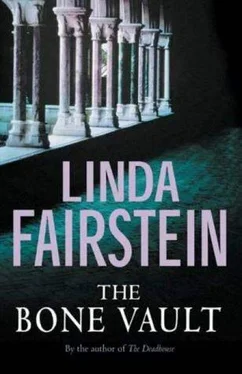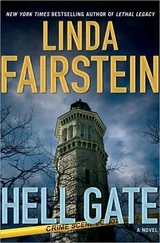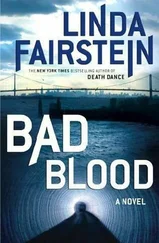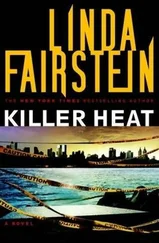“Let’s have some fried zucchini for the table while we’re talking,” Chapman told Adolfo. Nina embraced Mike, whom she had not seen in several months, and Mercer finished telling her that Vickee was less than two weeks away from delivering the child Mike referred to as “our baby.” He was the first on our team to start a family, and the significance of that was not lost on either Mike or me.
“Cheers!” We clicked glasses and caught up briefly before Mike asked Mercer to tell us what he had learned about Katrina Grooten.
“I couldn’t sneak the folder out so I just made some notes. The sergeant was sitting right next to the Xerox machine.”
“Whose case?”
“Cathy Daughtrey’s.”
“No wonder I don’t know about it.” I’ve tried several times to have her transferred out of the squad. She had burned out somewhere along the way, and never went the extra mile needed to solve the difficult cases. She would do anything possible to avoid taking direction from me or from Sarah Brenner, because it always meant more legwork than she wanted to do.
“Happened almost a year ago, just about this time of night. Monday, June eleventh. Katrina Grooten, twenty-nine years old. Employed at the Cloisters.
“Sixty-one says she left the museum a little before eight and was walking her bicycle down the steep path, through the park, on her way home. That was a small apartment near Dyckman. Says a gunman pulled her off the path behind a rock, made her undress, and raped her at gunpoint.”
“She give a ‘scrip?”
“Male black. Tall, slim.”
“That’s it?”
“Face was covered with a ski mask. Couldn’t see anything but the skin color on his hands and the back of his neck. That’s why she refused to pursue the matter. Went to the hospital to be examined. Cathy interviewed her there. But Grooten herself didn’t see any point in coming to look at photos ‘cause she couldn’t make an-”
“But DNA? Forget the corporeal ID.” I was impatient to know why I hadn’t gotten the opportunity to talk Katrina Grooten into letting us investigate and build the case.
“He didn’t ejaculate. No seminal fluid. No DNA.”
“Did we have any other cases like that in the park? Any other crimes to which we could have linked this one?”
“A couple of robberies with a guy who used a ski mask. No arrests, no suspects.”
“Witnesses? Nobody coming from or going to the museum?”
“The Cloisters is closed on Monday. Just a few of the staff working there. She thinks she was one of the last ones to leave.”
“Any record in the file that Cathy called me before closing out the case?” I believe in getting every victim into our office to be talked to by a member of the legal staff of our unit, whether or not it is a long shot, to see if there is any way to develop the facts into a stronger case or determine if the crime is the work of a serial offender or a convicted rapist on parole.
“Nope. Just EC’d it and the boss signed off on it.”
“Exceptional clearance? And she didn’t bother to call me for approval?”
“Your best friend here likes to think she runs the NYPD, and not just my life,” Chapman said to Nina, trying to make sense of this conversation for her. “In case you don’t realize it, Coop, a lieutenant can actually close out a case without your permission.”
“Whole song and dance in there about Ms. Grooten being from South Africa. She felt that too many black men had suffered in prisons in her country for crimes they didn’t commit, so she didn’t want to take the chance of starting a manhunt when she couldn’t even identify the rapist.”
“Great. So we got a bleeding heart. She’s got a Dutch name-descended from Boers, who killed more Africans than you or I could count,” Chapman said, holding his empty glass up in the air for Fenton to see, ordering another round of drinks. “Meantime, one of the brothers be having a field day in my neck of the woods and she decides she’s gonna give him a pass. America the Beautiful. And nobody notices a mope running around the park with a ski mask on in the middle of June, his dick hanging out of his pants.”
“Who was the outcry witness?” The first person Katrina called from the hospital might suggest the name of the friend or relative to whom she was closest, in whom she confided.
“She didn’t make any calls. She told Cathy she had no family in this country. And she didn’t want anyone at the museum to know what had happened. Katrina said she planned to be going back to Cape Town before the end of the year anyway.”
“What’d she do at the museum?” Chapman asked.
“Worked on medieval art. How’s this for weird, considering her final resting place? Had an expertise in tomb sculpture.”
“Nobody’s touched the story yet. You lead a charmed life, Alex.”
Battaglia had the morning newspapers stacked on his desk, and someone from the public relations office had gone through them to check for crime-related clippings before I showed up on his office doorstep shortly after 8A.M. on Thursday.
I had scanned them myself before leaving my apartment. Below the fold on page A1 of theTimes was the feature on Pierre Thibodaux’s sudden resignation. Trustees gave opinions in unsourced quotes, and art critics gnawed at some of the questionable purchases made during his tenure. Everyone was surprised at the timing of the announcement, and some even speculated at a behind-the-scenes scandal involving fiscal impropriety or a masterpiece of questionable provenance.
No mention was made of a dead woman found in an ancient sarcophagus. Thibodaux himself had made only a vague reference to the unfortunate coincidence of an ongoing police investigation. His assistant explained that he would hold a press conference in a week’s time, after he’d had an opportunity to brief the board members in private on his decision.
“Mickey Diamond called me at home late last night,” I told the boss. “He said they didn’t want to go with it because no one over at the museum would confirm the girl’s ID and the paper was spooked about the next-of-kin thing. Afraid to print something and find out she had family here who would only learn about her death that way.”
“Since when are they so sensitive? Truth of the matter is, as one of the other reporters put it to me, Katrina Grooten wasn’t really ‘anybody.’ Pretty pathetic commentary on their values.”
“Paul, I spoke to Jake about the leak.” He had returned my call shortly after I left the office. He’d also tried to get through to my cell phone, but it wasn’t working-just as Anna Friedrichs had described-while we were in the museum basement. So Jake had come over after dinner, when he finished working. “He didn’t do it. He wouldn’t lie to me.”
“It’s dead in the water. I trust it won’t happen again.”
“Have you heard from your counterpart in New Jersey?”
“A casual inquiry. I didn’t get the sense he’d want to fight for jurisdiction of the case unless he knew it could be solved with very little effort. Or until you solve it for him.”
“So I can keep working on it because the press isn’t interested?”
“You can stay with it because Katrina Grooten was a rape victim.” That would be his answer to Pat McKinney. “Any chance that attack last June is related to her death?”
“Very unlikely, but we’re going to run it down. She was treated at Presbyterian Hospital. An evidence collection kit was prepared, but it never went to the lab because she refused to cooperate with the investigation.”
“Didn’t the ME want the genetic profile developed from the DNA to put in the data bank?”
With the astounding technological advances in the science of DNA, it was the practice of the serology lab to develop the “fingerprint” from every piece of crime scene evidence-blood, semen, saliva-and add it to the local data bank. Unsolved cases that had never seemed to be part of a pattern before were connected by the cold hits that the computer made between one violent occurrence and another, all over the city. Some resulted in links to convicted offenders whose samples had been obtained prior to their release from state prison, leading to arrests in matters that had been investigative dead ends.
Читать дальше












